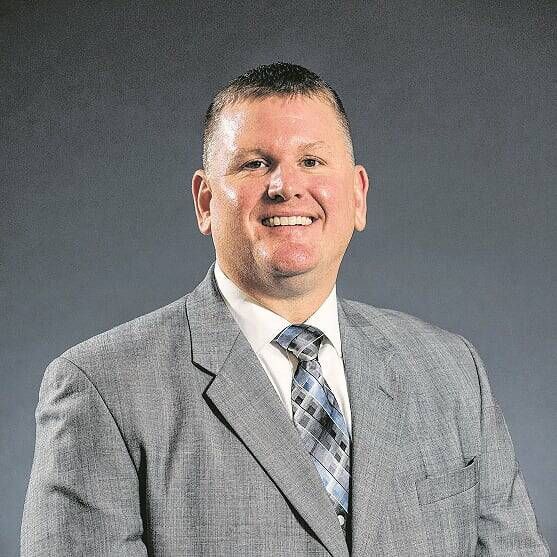Click here to subscribe today or Login.
Editor’s note: This is the first report in a three-day series further examining the impacts of Luzerne County government union contracts adopted last week.
Seven months after warning about a brewing staffing crisis, Luzerne County 911 Executive Director Fred Rosencrans is thankful county council has approved a new union contract with higher wages.
“I am relieved,” Rosencrans said. “I truly appreciate the county manager and council’s support for this contract. It’s our hope it will help us get quality candidates to fill vacancies and also to keep employees.”
Speaking to council in November, he had stressed low pay and outside competition were hampering his efforts to attract and retain crucial 911 telecommunicators to handle life-and-death emergency calls and swiftly and accurately dispatch responders.
Some area warehousing employers are now offering higher pay for positions that come with less stress and responsibility, he had said.
At that time he had 20 telecommunicator vacancies.
Last week, 25 of 64 telecommunicator positions were vacant, he said.
In the prior AFSCME union contract, which expired the end of 2021, telecommunicators started at $32,900, or $15.81 per hour.
The new starting salary for telecommunicator trainees will increase to $37,500 annually, which is $18 per hour based on the 40-hour work week. That starting salary will increase $250 annually from 2023 through 2025.
Workers also will receive raises of 3% in both 2023 and 2024 and 2.5% in 2025 with the new contract.
But Rosencrans emphasized the contract provides other ways to boost compensation beyond the starting salary, subsequent raises and overtime.
After one year and one day of employment, telecommunicators can complete an in-house training program to become a certified training officer. These officers help guide and observe new employees in meeting their job requirements.
Telecommunicators receive a one-time $500 increase in their annual base wage if they successfully complete training officer certification, according to new contract changes.
In addition, training officers are paid an additional $6 per hour during periods they are assigned to watch over new employees and complete a report summarizing their observations.
Another advancement opportunity comes after three years of service, when telecommunicators are required to take a test to determine if they should rise to the telecommunicator specialist level. Specialists must score 90% on a recertification test every two years after that.
Rosencrans said the county’s 911 center is among only five in the state that are nationally accredited for their training and quality assurance programs.
Telecommunicators receive a one-time $2,500 base-pay increase when they become certified as specialists, the county contract summary says. Specialists also must obtain certification to be training officers if they have not already completed that step, which comes with the additional $500 increase and $6-per-hour pay during training officer assignments, it said.
Rosencrans noted one-year telecommunicators can wait until the three-year mark to become training officers if they would prefer.
“Between both certifications, it’s a $3,000 increase after three years and one day on top of their percentage raises they get every year,” Rosencrans said.
County council added the telecommunicator specialist designation in 2016, largely to help retain more experienced workers.
Current telecommunicators and telecommunicator specialists will receive a one-time base salary increase of $4,600 this year under the new contract. Unionized 911 workers in other positions will receive $1,500 base-rate salary increases this year.
After that, all 911 workers receive the 3%, 3% and 2.5% raises for the final three years of the contract.
Rosencrans said he is eager to re-advertise the positions with the new salary as soon as the AFSCME residual union contract changes are formally incorporated.
He is not comfortable with 25 vacancies, saying public safety cannot be compromised.
“We have one of the highest-profile critical agencies in the county,” he said.
With so many vacancies, telecommunicators are regularly required to stay put for a second eight-hour shift of mandatory overtime, which is “not a good place to be,” he said.
Once 911 is again able to maintain minimum staffing levels, the administration plans to sit back down with the union to discuss a possible schedule change.
Most 911 centers have changed to 12-hour shifts that reduce overtime and allow workers with less seniority to have some weekends off, Rosencrans said. He said he spoke to another county that has not mandated overtime in years due to a switch to 12-hour shifts.
“We have to start looking at life-work balance,” he said. “We are round-the-clock and can’t shut down on July 4 or holidays. We’re here working every day.”
The lion’s share of 911’s expenses are covered by a state fee on land and wireless phone lines — not the county’s general fund operating budget, officials have noted.
Reach Jennifer Learn-Andes at 570-991-6388 or on Twitter @TLJenLearnAndes





